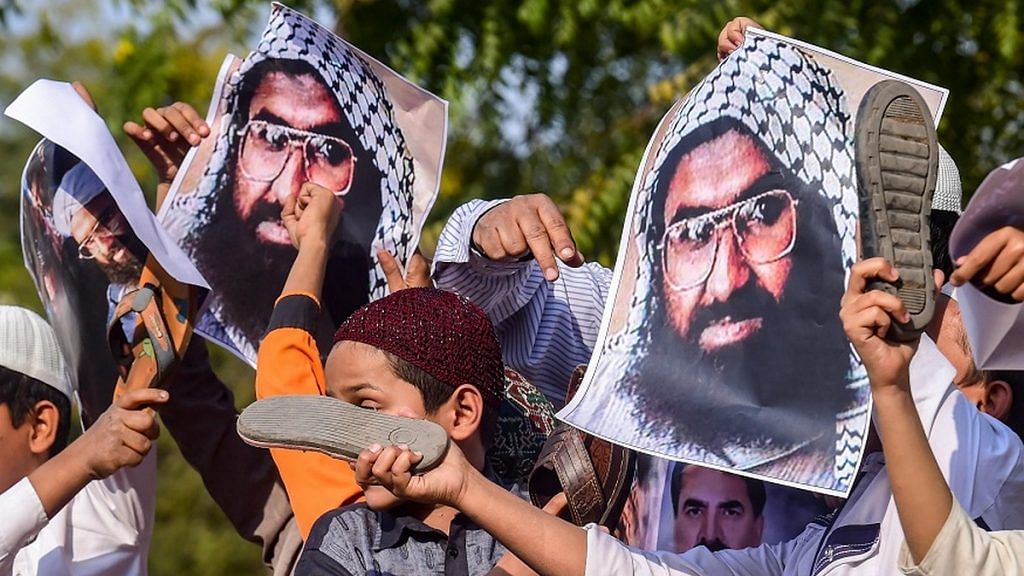As China put a technical hold on the UNSC proposal to list Jaish-e-Mohammed chief Maulana Masood Azhar as a global terrorist, Indian politicians once again offered various versions of this textbook Nehruvian response – ‘India needs to reclaim its rightful place in the comity of nations’.
While constantly saying that India deserves its ‘rightful’ place in the global order doesn’t help New Delhi achieve much, the statement reflects a great deal about India’s foreign policy thinking and how it is not in sync with the realpolitik of present times. It also shows why Indian foreign policy needs a major overhaul now, something that China successfully attempted a few decades ago.
Nehruvian foreign policy
Jawaharlal Nehru was a complicated politician. During the first half of the 1950s, he tried to supplement India’s lack of hard power by deploying his charming rhetoric. He genuinely believed in international institutionalism and how it could make the world a more peaceful place.
Also read: India never had an offer to become permanent UNSC member — this is a fact
Often characterised as ‘idealist’, in practice, Nehru’s foreign policy was more nuanced. He had an acute sense of India’s national interests, but often the tools he used to achieve them reflected deep-seated idealism – be it the internationalising of the Kashmir issue or his love for the non-aligned movement.
A manifestation of this Nehruvian thinking is reflected in Indian foreign policymakers’ obsession with symbolic victories.
For instance, the Indian government spends significant political capital and resources in its quest for a permanent seat at the United Nations Security Council (UNSC). This foreign policy objective is not just futile, but makes a mockery of a state that wants to grow as a major power.
The UNSC is now a redundant organisation that does nothing beyond authorising peacekeeping missions and passing resolutions condemning unfriendly nations. We are now witnessing a complete reordering of the global power structure. And, in this emerging new global order, an older institution such as the UNSC hardly carries any weight.
One needs to ask if getting into the UNSC will help India achieve its objective of becoming a global power.
India’s diplomatic reaction to the Jaish-sponsored Pulwama terrorist attack also shows its reluctance in facing harsh realities.
While the Balakot air strike was a military response, diplomatically, India started an aggressive drive to get Pakistan blacklisted by the Financial Action Task Force. It also mounted a campaign to ‘isolate’ Pakistan and get UNSC to list Jaish-e-Mohammed (JeM) chief Masood Azhar as a global terrorist.
The fact is that getting Pakistan blacklisted by the FATF won’t hurt its economy. Regardless of the UNSC designation, Azhar’s terrorist empire will thrive as long as he is supported by the Pakistani state. And given China’s ring of influence and Pakistan’s Gulf allies, it is nearly impossible to diplomatically isolate Pakistan now.
Also read: China humiliated India because of these 5 fatal follies of Modi Doctrine
Understanding ‘greatness’
Over the past few years, Indian foreign policy thinking has been burdened by the weight of the ‘greatness’ of the Indian civilisation. The idea that India has had one of the greatest and richest civilisational histories and, therefore, the world owes India a seat at the global high table is misplaced.
Indian policymakers’ repeated emphasis on ‘reclaiming’ the ‘rightful’ place in the global order reflects how Indian foreign policy thinking in a lot of ways is still stuck with the Nehruvian model.
What has made this situation worse is the introduction of the BJP’s revisionist ideas regarding India’s civilisational greatness, which is being spread through school textbooks.
The China model
India’s out-of-sync foreign policymaking becomes pronounced when we compare its recent grand strategy with that of China’s.
After the Communist leadership established the People’s Republic of China in 1949, its leaders pushed a robust mythology. They incessantly talked about “century of humiliation” that the Chinese state had to endure from mid-nineteenth to mid-twentieth century. And, the foreign policy aim was to restore the Chinese pride.
Since this strategy was not supplemented with any real economic development, it broadly failed until Deng Xiaoping took charge in late-1970s. Once Deng was in-charge, he established a new foreign policy doctrine – “hide your strength and bide your time”.
For the next few decades, China delivered unprecedented levels of economic growth, transformed itself into a middle-income economy and modernised its military. And almost four decades later, under its present leader Xi Jinping, China is finally unleashing its power and influence at the global level.
This is the kind of acute realist thinking that seems to be absent in India’s foreign policymaking.
Most of India’s strategic community has a very sharp sense of what India’s grand strategy should be. They argue that China, not Pakistan, is India’s real competitor. Most understand that India’s mostly continental military has to be transformed into a maritime force. But the problem is that the quest for small symbolic victories draws its focus away from the deeper and more profound quest for genuine global power.
Also read: India says talking to China, have given ‘more than enough’ evidence on Masood Azhar
